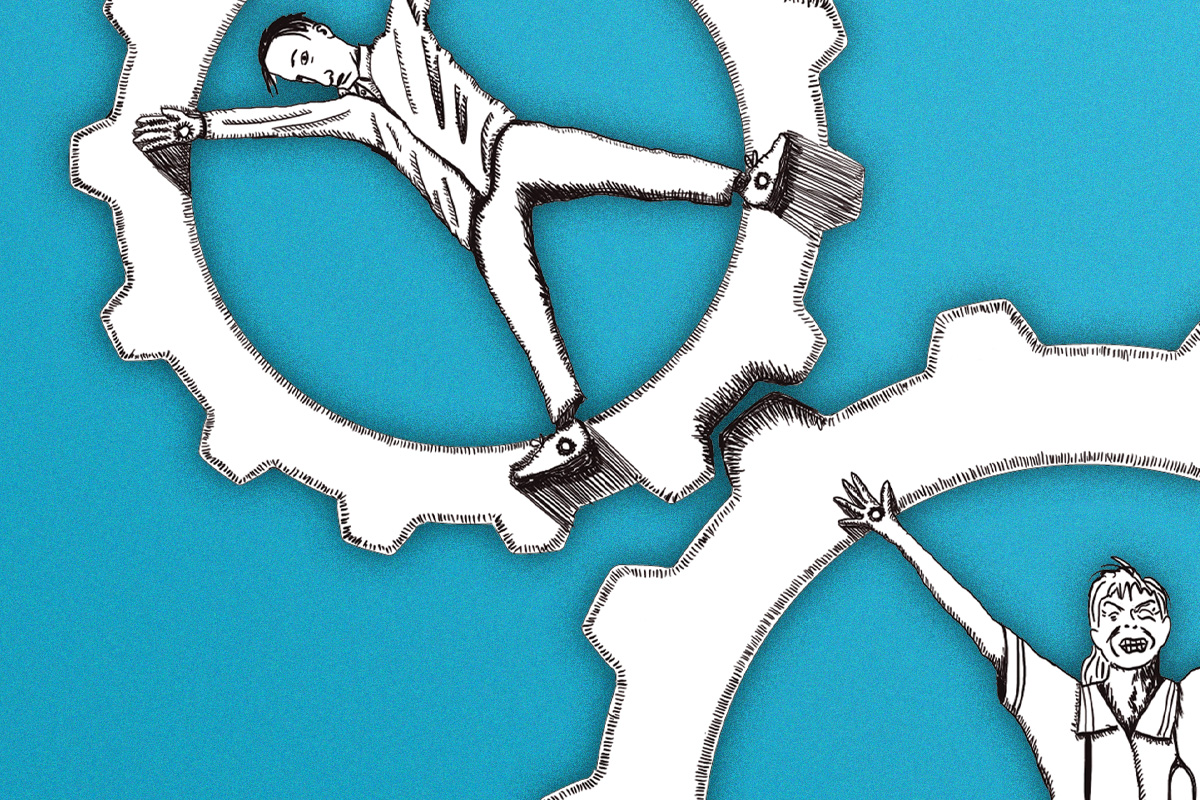Since the rise of generative artificial intelligence (AI), with new technologies and tools like ChatGPT, the capitalist press has gone into overdrive, peddling wild fantasies about the future of work.
Most common is the idea that AI will destroy hundreds of millions of jobs. However, The Independent suggests that there is a silver lining. “Could the age of artificial intelligence also spark a new era for the working classes?” they ask.
Obsolete
Very soon, the argument goes, complex code, algorithms, and programs will be doing most – if not all – computer-based or professional work: from software engineering, to medicine, to scientific research.
Previous waves of automation primarily affected those in manufacturing. But now it is office workers who are set to become obsolete.
Evidence from the UK-government-funded Skills and Employment Survey, for example, has found that only 34 percent of the modern British workforce feels like they now have significant influence or control over their day-to-day tasks at work.
This is down from 62 percent in 1992, with a notable decline amongst those most vulnerable to becoming a proverbial cog in the digital machine.
The aforementioned article’s author says that, while AI will destroy traditional white-collar (so-called ‘middle class’) jobs, however, it will create a new boom for skilled manual labour.
After all, they note, little progress has been made thus far in designing a robot that can replace plumbers, electricians, etc.
Maybe, then, AI will help workers by simultaneously boosting the position of skilled manual labour, whilst creating new technology-related roles across the economy?
Hype
Capitalist investors and regimes are pouring trillions into genAI, despite the fact that it largely remains unprofitable.
And mainstream media outlets, owned and controlled by billionaire moguls and tech companies, are keen to contribute towards the hype, helping to ensure that the tech bubble keeps growing.
In the midst of this mania, it is hard to ascertain how much more efficient the likes of ChatGPT really are compared to human beings.
Research from Uplevel Data labs suggests that the use of AI has not increased efficiency in software development. But it has increased bugs by 41 percent.
A study of MIT scientists, meanwhile, found that 82 percent of researchers were less satisfied at work after adopting AI, and that for more simple lab tasks, it actually created more waste.
Proletarianisation
Regardless of how many white-collar jobs it eventually takes, AI is only accelerating an old trend: the ‘proletarianisation of’ the middle classes.
Capitalism has always driven skilled workers into low skill – and thus low paid – menial work, in which we become, as Marx said, mere appendages to the machine.
Long before AI, the value of many jobs – including those occupied by the well-educated – has been sinking, as the bosses seek to push growing layers of the working class into insecure gig work.
Deskilling has taken place in jobs like black-cab driving, for example, as new technologies open up protected professions to a wave of unskilled, low-paid labour, thereby allowing the capitalists to spur on a race-to-the-bottom in terms of wages and conditions.
This, combined with the endless gutting of welfare, is bringing back Dickensian conditions, where workers are raw material for exploitation.
But what about blue-collar workers and tradespeople?
It is true that robots struggle to do skilled manual work, like wiring electrics or laying bricks. But if AI devalues graduate office-based jobs, then young workers will turn to other trades for better job security and pay.
This intensified competition, in turn, will drive down skilled workers’ wages – in sectors like construction, for example, which could soak up a sudden rise in the labour supply.
Socialism
AI may speed up the rise of precarious work. But every action has a reaction. Workers are not taking the bosses’ attacks lying down.
Fresh layers – in the gig economy, the tech industry, and other sectors – are beginning to get organised. New waves of workers are entering the traditional unions. And formerly middle-class professions like doctors and lecturers are taking to the picket lines.
These struggles must have as their aim the expropriation of the billionaires. The tech barons cannot be regulated. They have capitalist politicians in their pockets.
Communists are not Luddites. We do not oppose machinery and automation, including AI.
Without fundamentally changing the system, however, in order to put workers’ in control, technology will always work against us.
Workers must therefore organise to seize the AI servers and data centres, and put modern technology to work for us, not at our expense.
To truly solve the problems and contradictions posed by technological change, we need common ownership, workers’ control, and socialist planning.






